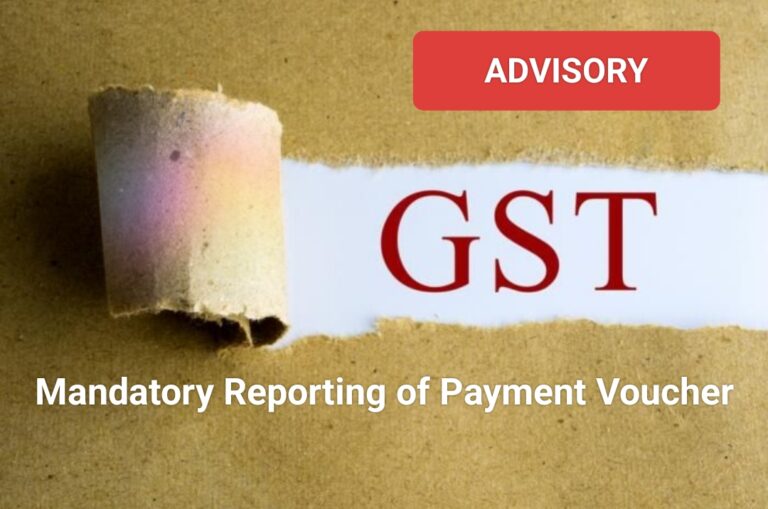The Goods and Services Tax Network (GSTN) has recently issued a crucial advisory highlighting mandatory reporting of payment voucher details in GSTR-1, effective from the return period of May 2025. This update brings renewed focus on Reverse Charge Mechanism (RCM) compliance and the importance of proper documentation under the GST framework.
Why This Advisory Matters
Until now, many taxpayers have overlooked the requirement of maintaining and reporting certain documents under GST—particularly those related to RCM transactions. With this new advisory, businesses must now ensure strict compliance, especially in issuing and reporting payment vouchers.
Key Takeaway: Payment Voucher is Mandatory Under RCM
While most taxpayers are familiar with issuing self-invoices for purchases from unregistered suppliers under RCM (as per Section 31(3)(f) of the CGST Act), there’s still limited awareness about the obligation to issue payment vouchers.
Here’s the distinction:
- Self-invoice: Required only when the supplier is unregistered.
- Payment Voucher: Required for all RCM transactions, whether the supplier is registered or unregistered.
This requirement is enforced under Section 31(3)(g) of the CGST Act, which mandates the issuance of a payment voucher at the time of making payment to the supplier under RCM.
Additionally, the government has clarified that this requirement also extends to payments made to foreign suppliers under RCM.
When and Where to Report Payment Voucher Details in GSTR-1
The timing of reporting must align with the time of supply under Section 13(3)(g) of the CGST Act.
From the May 2025 tax period onwards, payment voucher details should be reported in Table 13, Serial No. 7 of GSTR-1. This section requires businesses to disclose:
- The number of payment vouchers issued
- Vouchers cancelled
- Net vouchers issued during the tax period
Essential Details to Include in a Payment Voucher
As per GST rules, a payment voucher under RCM should include the following particulars:
- Name, address, and GSTIN (if registered) of the supplier.
- A unique consecutive serial number (maximum 16 characters) for the financial year.
- Date of issue of the payment voucher.
- Name, address, and GSTIN of the recipient.
- Description of goods or services for which RCM applies.
- Total amount paid to the supplier.
- GST breakup: CGST, SGST/UTGST, IGST, and cess, if applicable.
- Place of supply, including state name and code in case of interstate transactions.
- Signature or digital signature of the recipient or their authorized representative.
Final Thoughts
With the enforcement of this advisory, businesses must proactively review their GST documentation practices. Proper issuance and reporting of payment vouchers are now non-negotiable for RCM compliance. Timely preparation and reporting in GSTR-1 will not only ensure adherence to the law but also help avoid notices or penalties.
Stay compliant, stay ahead!
